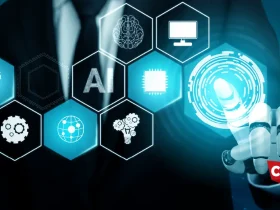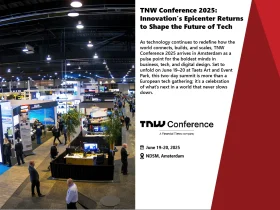Businesses must provide their employees with opportunities for professional growth if they wish to innovate and leverage intelligent automation.
There are advantages to outsourcing specific responsibilities and features. By leveraging the skills of external specialists, businesses can keep costs down. Depending on the need, they can also quickly scale up and down. However, outsourcing, especially when it comes to innovation, isn’t always the solution for driving business outcomes.
Investing in internal resources or the people who work on the business daily is often the best course of action. Companies must provide employees with the resources and training they require to perform their jobs well.
Additionally, training must consider the significance of human-machine relationships in today’s workforce. Innovating successfully today often hinges on how well humans interact with machines and leverage automation. Companies must offer automation-specific training that provides employees with the necessary skills to unlock the full potential of automation.
Also Read: Data sovereignty: Key Considerations and hidden economic trade-offs
Companies can solve skill gaps with the right training program. Additionally, it can boost buy-in, enhance experiences, and empower employees. A well-designed training program can keep the employees engaged while enhancing performance at a time when many businesses struggle to attract and retain top talent.
Addressing the Skills Gap
Before diving into specific strategies to improve workplace training, it’s crucial to address an essential underlying assumption – that many people in the workforce are unsatisfied with where they are in their careers.
Forty-one percent of employees were likely to consider leaving their jobs in the next year, according to Microsoft’s 2021 Work Trend Index report. Nearly fifty percent of respondents were considering a career change. These numbers were substantially lower in 2020. The intent to change jobs is significantly higher in 2022 than it was a few years ago.
Naturally, there will be more skill gaps to fill if turnover is higher. When teams are understaffed, processes take longer to complete, productivity declines, and innovation suffers. Implementing new technologies into routine operations becomes more challenging when the workforce is changing.
The fact that people seek more than just flexible work schedules and higher pay makes this challenging. These benefits are important but insufficient to discourage people from looking for opportunities elsewhere. Employees want equal and adaptive professional development more than ever now. The most effective way forward is to improve the learning and development of current employees rather than filling skills gaps with new talent.
Robust Training Needed for Intelligent Automation
Organizations must not only offer opportunities for continuous learning but also ensure that these opportunities align with their objectives and larger market trends.
If employees receive ample training, intelligent automation can be implemented successfully. Otherwise, any new system, software, or platform can result in more administrative work than actual savings. Establishing a solid training and development capability that supports each employee regardless of where they are in their career trajectories is crucial. Not only can well-trained employees positively impact automation deployment, but they can also promote its advantages to the rest of the company.
Establish a Culture of Learning
Businesses should offer professional development that is tied to both their innovation goals and what their employees do. Work-based objectives should include upskilling and reskilling. Individual needs must be taken into consideration while planning professional development. Businesses must not offer all employees the same training – they must ascertain the goals and aspirations of their employees to develop training opportunities that align with those goals.
Nowadays, remaining competitive is more about fostering a positive, learning-oriented culture than it is about outsourcing. Companies must invest in their employees because they already support the business and the mission. It is essential to provide them opportunities to grow and use new skills in their work. Then, they will stay long enough to work on the innovative and exciting initiatives that truly set the company apart. Companies can then leverage things like intelligent automation to take themselves to the next level.



























